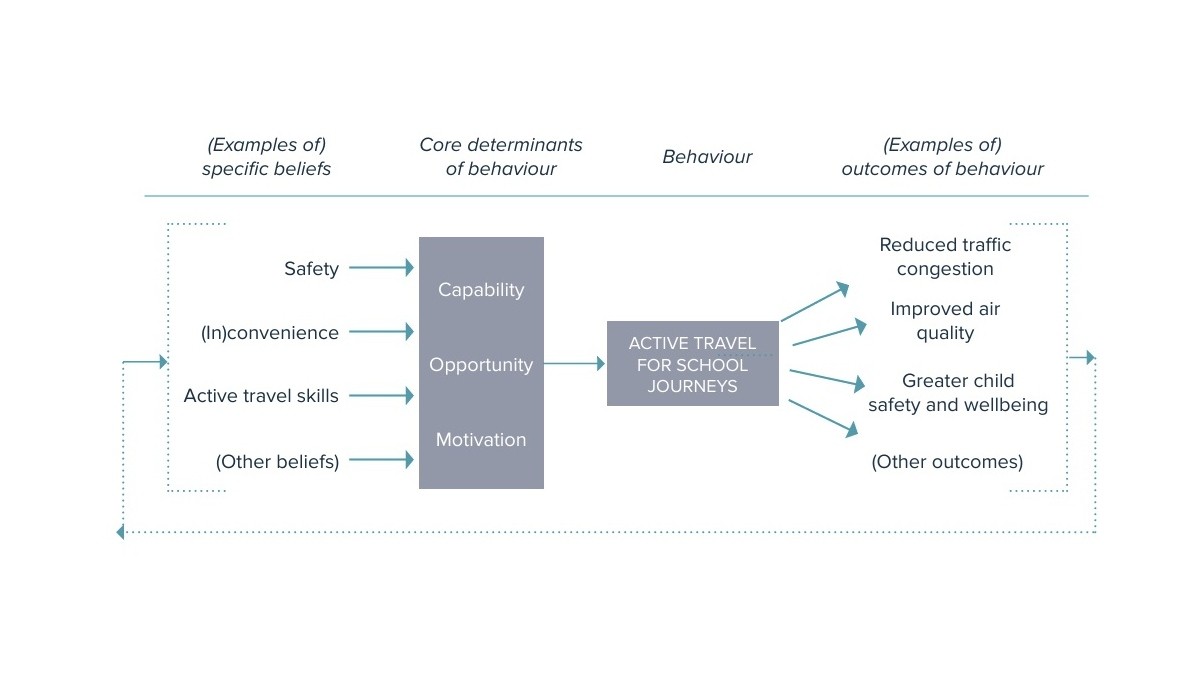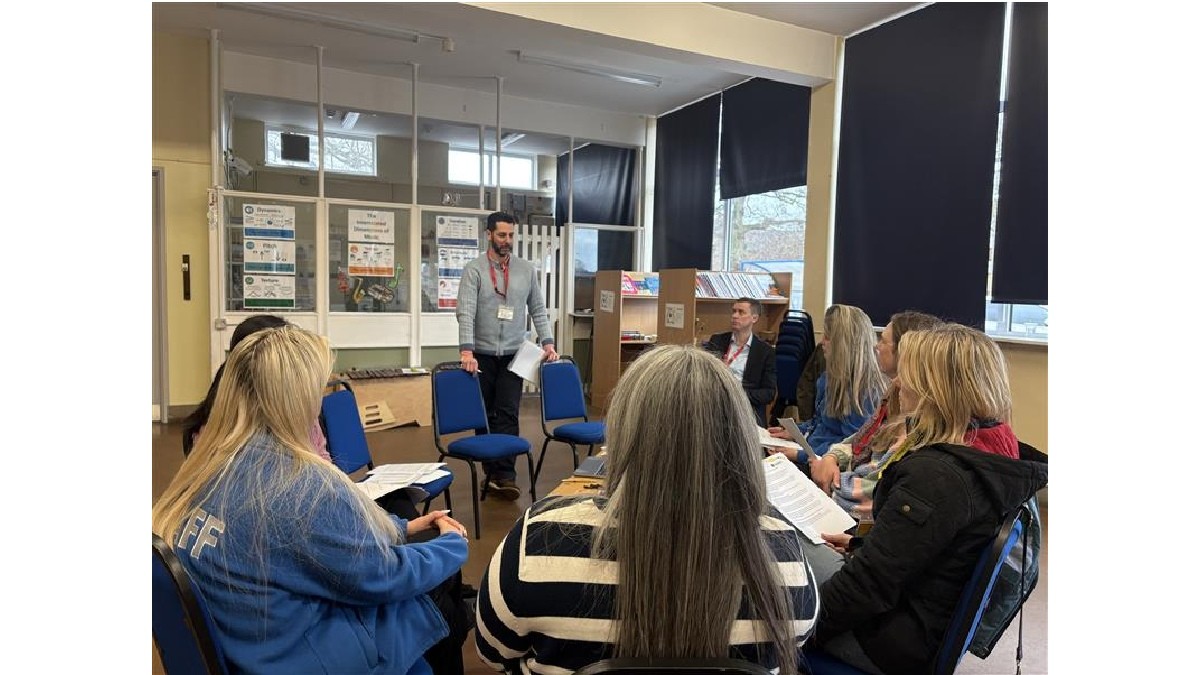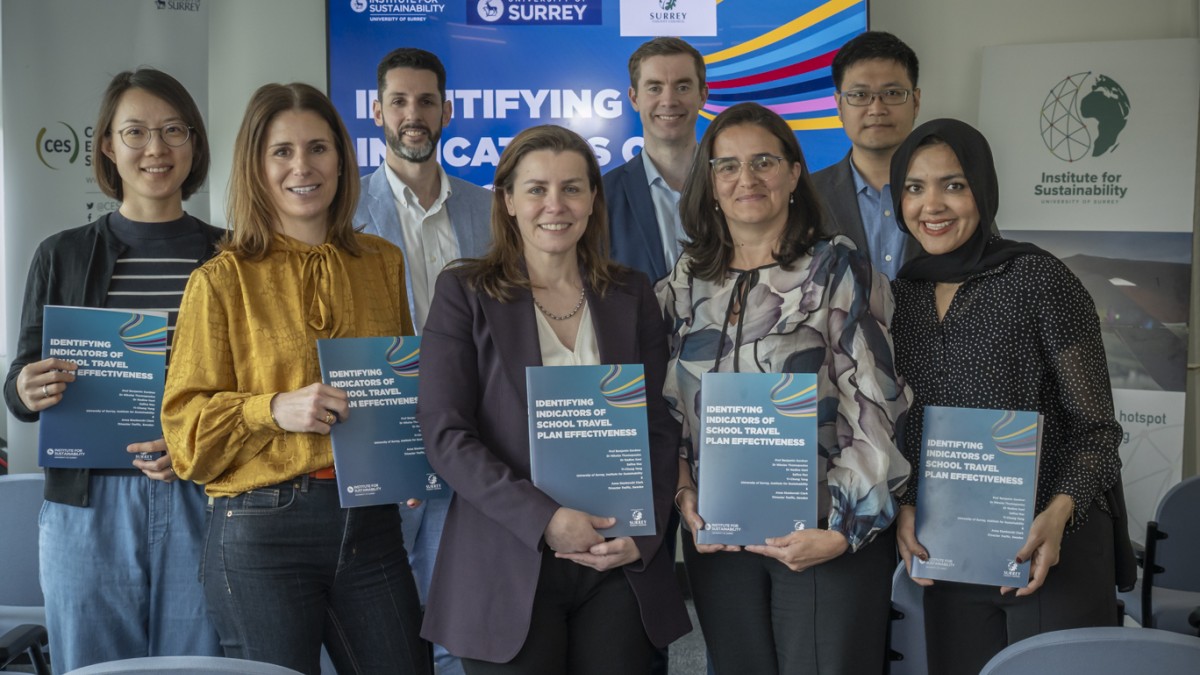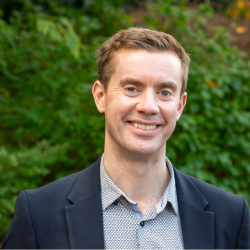Promoting active school travel
Led by Prof Benjamin Gardner, the project looked at the barriers to walking or wheeling to school and ways to encourage active and sustainable travel through behaviour change using the COM-B methodology.
The findings of this project will help Surrey County Council develop the School Travel Effectiveness of Planning (STEP) tool, being able to objectively critique schools travel plans, and therefore support more active and sustainable travel choices within school communities.
The challenge
Surrey County Council is committed to promoting a shift toward more active and sustainable travel across Surrey by encouraging the use of public transport, walking, and cycling instead of private cars. The Sustainable Modes of Travel to School Strategy (SMOTSS) is a key initiative supporting this goal, helping to embed sustainable transport practices within school communities.
Surrey County Council supports schools through School Travel Plans (STPs), which provide formal strategies and actionable steps to promote active travel among staff and students on their journeys to and from school. A range of initiatives are currently in place, with over 70 schools now accredited with ‘Modeshift STARS’ travel plans, which are part of a national scheme.
However, current methods for evaluating the impact of STPs remain limited - often relying on simple in-class vote-counting exercises among students. To gain a deeper understanding of the effectiveness of these plans and to improve future interventions, Surrey County Council partnered with the Sustainability Innovation Hub at the Institute for Sustainability. This collaboration aimed to provide a robust framework for assessing impact and identifying both barriers and opportunities for active travel.
This project is considered the first of its kind in the UK, representing a unique collaboration between a local authority and behaviour change experts to systematically evaluate STPs.
Our approach
To provide Surrey County Council with expert, evidence-based guidance, the project drew on the expertise of leading academics. Professor Benjamin Gardner contributed valuable insights from his research in behaviour change, particularly his work on how habits influence everyday human actions - especially those related to health and the environment. Dr Nikolas Thomopoulos brought his expertise in sustainable transport and extensive experience from transport evaluation projects. Dr Nadine Itani supported the initiative with a unique blend of academic knowledge and industry experience in transport management. Additionally, two PhD students from Hospitality and Tourism Management at Surrey Business School, Safina Naz and Yi-Chung Yang, contributed their knowledge and skills in sustainable behaviours.
What we did
The research team aimed to answer below three questions:
- What active school travel initiatives have been trialled?
- And what is known about their effectiveness?
- What criteria can be used to assess the effectiveness of active school travel initiatives?
To answer these questions, the team conducted two work packages: a literature review and two focus group discussions with primary schools in Surrey. Both activities explored relevant factors through the lens of the COM-B model, which examines Capability, Opportunity, and Motivation as key components of behaviour change.

Figure 1. Flowchart model of the determinants and outcomes of active travel behaviour and behaviour change.
Literature review
The team reviewed both academic and grey literature as part of the study. The academic literature review focused on identifying previous active school travel initiatives and the indicators used to evaluate their effectiveness. Interventions were categorised based on their content and function - for example, whether they aimed to educate participants or provide skills training. Quantitative indicators of effectiveness were then mapped to the COM-B model categories (Capability, Opportunity, and Motivation). The grey literature review aimed to supplement these findings by exploring additional enablers and barriers to active school travel, identifying innovative initiatives, and uncovering insights not captured in the academic literature including successful examples in South Yorkshire and Sweden.
Focus groups
Two focus group discussions were held in March 2025 at Echelford Primary School and Horley Infant School. At the time of the project, Echelford Primary did not have an STP in place, while Horley Infant had an established and highly rated STP. Each session included both caregivers and staff members, and focused on understanding the schools' approaches to STPs, as well as sharing personal experiences and suggestions related to active travel modes.

The focus group workshops revealed that the most commonly reported barriers to active school travel were related to a lack of perceived opportunity - specifically, concerns about the safety and convenience of engaging in active travel. Additional barriers included capability concerns, such as children’s ability to navigate road traffic safely, and motivation factors, including caregivers’ safety concerns and children’s willingness to use active travel modes.
The next steps
Based on the findings, the research team provided key recommendations for enhancing the effectiveness of STPs, including:
- Designing active school travel initiatives using a systems-based approach, which involves coordinated effort across multiple stakeholders to design, implement, and evaluate interventions.
- Assessing STP effectiveness using a comprehensive framework that includes psychological capabilities (e.g., cycling proficiency), actual and perceived opportunitiesfor active travel, and motivation factors related to both active and inactive travel.
- Taking extraneous factors into consideration, such as demographic characteristics, that can influence the effectiveness of active travel initiatives.
The team also offered reflections on the effectiveness of different types of interventions and outlined future directions for promoting active school travel. These recommendations will support Surrey County Council in developing a tool to assess the effectiveness of STPs.
Understanding what makes School Travel Plans (STPs) effective, and then having the ability to make STPs more effective in shifting behaviour towards more active and sustainable modes of travel is fundamental to Surrey’s key priorities. This project, working with University of Surrey’s Institute for Sustainability has been a vital component in providing us the knowledge and understanding around how we move STPs forward. Working with Surrey colleagues in our Resident Intelligence Unit (RIU), outputs from this survey will allow us to create the first iteration of the STEP tool, and help us to begin the process of building a systems-based approach around the STP process.Jonny Ray, Senior Safer Travel Officer, Road Safety & Sustainable School Travel, Surrey County Council
To learn more about the project, read the report (PDF).
SDGs
This project aligns with several United Nations Sustainable Development Goals (SDGs), specifically SDG 3, SDG 11, and SDG 13. Promoting active modes of travel supports SDG 3 (Good Health and Wellbeing) by encouraging increased physical activity, which contributes to improved health outcomes. It also advances SDG 13 (Climate Action) by reducing carbon emissions, thereby helping to mitigate climate change and improve local air quality. Collectively, these benefits contribute to SDG 11 (Sustainable Cities and Communities) by fostering healthier, cleaner, and more sustainable urban environments.
Contributors

- Nathalie Hinds, Director of Operations, Innovation and Partnerships, Institute for Sustainability, University of Surrey
- Catherine Cole, Innovation Lead, Sustainability Innovation Hub, Institute for Sustainability, University of Surrey
- Haeyoung Eun, Innovation Lead, Sustainability Innovation Hub, Institute for Sustainability, University of Surrey
- Professor Benjamin Gardner, School of Psychology, University of Surrey
- Dr Nikolas Thomopoulos, Surrey Hospitality and Tourism Management, Surrey Business School, University of Surrey
- Dr Nadine Itani, Surrey Hospitality and Tourism Management, Surrey Business School, University of Surrey
- Safina Naz, Surrey Hospitality and Tourism Management, Surrey Business School, University of Surrey
- Yi-Chung Yang, Surrey Hospitality and Tourism Management, Surrey Business School, University of Surrey
- Dr Anna Stankovski Clark, Trivector Traffic, Sweden.
The Institute for Sustainability facilitates collaborations between scientific experts and organisations. The Institute’s Sustainability Innovation Hub provides expert voices from the Fellows to nurture ideas, encourages collaboration, and supports organisations in the adoption of sustainable practices, products, or services.
Read the latest on the University of Surrey’s UN SDG report.
This work was commissioned by Surrey County Council.

Related sustainable development goals











